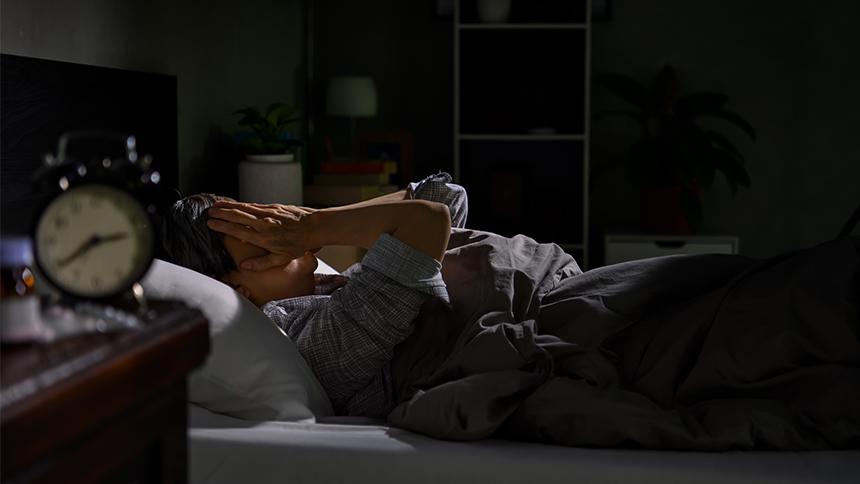What could help you to get better sleep while caring for someone with dementia?
We share tips to help carers get better sleep.
Question:
‘My husband has dementia and gets me up every night. I’m starting to become very tired – is there anything I can do?’
Answer:
Disturbances during the night are common for people with dementia. They may regularly wake up and walk about or need help going to the toilet. They might become disoriented, anxious or fearful.
For carers, the constant worry this causes can make it hard to fall asleep or stay asleep.
Over time it can become exhausting, especially if you’re caring for someone on your own.

This may affect your mental health or worsen a physical condition, and your needs as a carer are as important as your husband’s. It’s also a common reason for not feeling able to cope with supporting someone at home anymore.
‘Sleep hygiene’
Around seven to nine hours’ sleep each night is recommended for adults. However, carers often get a lot less than this and their sleep is not as restful as it should be.
Sometimes this is unavoidable, but good ‘sleep hygiene’ helps many people. See if you can make any of these changes:
- Limit caffeine and alcoholic drinks in the evening.
- Don’t take electronic screens to bed – try a book or magazine instead.
- Go outside while there’s daylight and get whatever exercise you can.
- Take a short afternoon nap, ideally not for more than an hour or so.
- Don’t eat too late or drink too much in the evening.
- Make the bedroom a quiet, comfortable place just for relaxing and sleeping.
It may be tempting to stay awake during the quiet early hours, but putting off sleep can make you feel tired in the morning.
Try setting a strict ‘lights out’ time for yourself and then stick to it.
Other help
It can be difficult for couples who’ve slept together for years to consider separate beds or bedrooms. However, many people find that sleeping separately improves the quality of their sleep.
There could be support available to help with caring, such as a carer break or replacement (respite) care.
Even a short break can make a difference – ask your local authority if you’re in Wales or England, or your health and social care trust in Northern Ireland.
Talk to your GP if you think sleep problems are affecting your health, or if you’re also experiencing feelings of depression or anxiety.
They may be able to help with talking therapies or medicines to treat these conditions.
Medicines to help sleep are sometimes useful, though they may have unpleasant or dangerous side effects and so aren’t a long-term solution.
Sleep is a regular topic of discussion on Talking Point, our online community where you can talk to people who understand how hard things can be.



Susan harris
saysEileen Forsdick
saysGill Jones
says